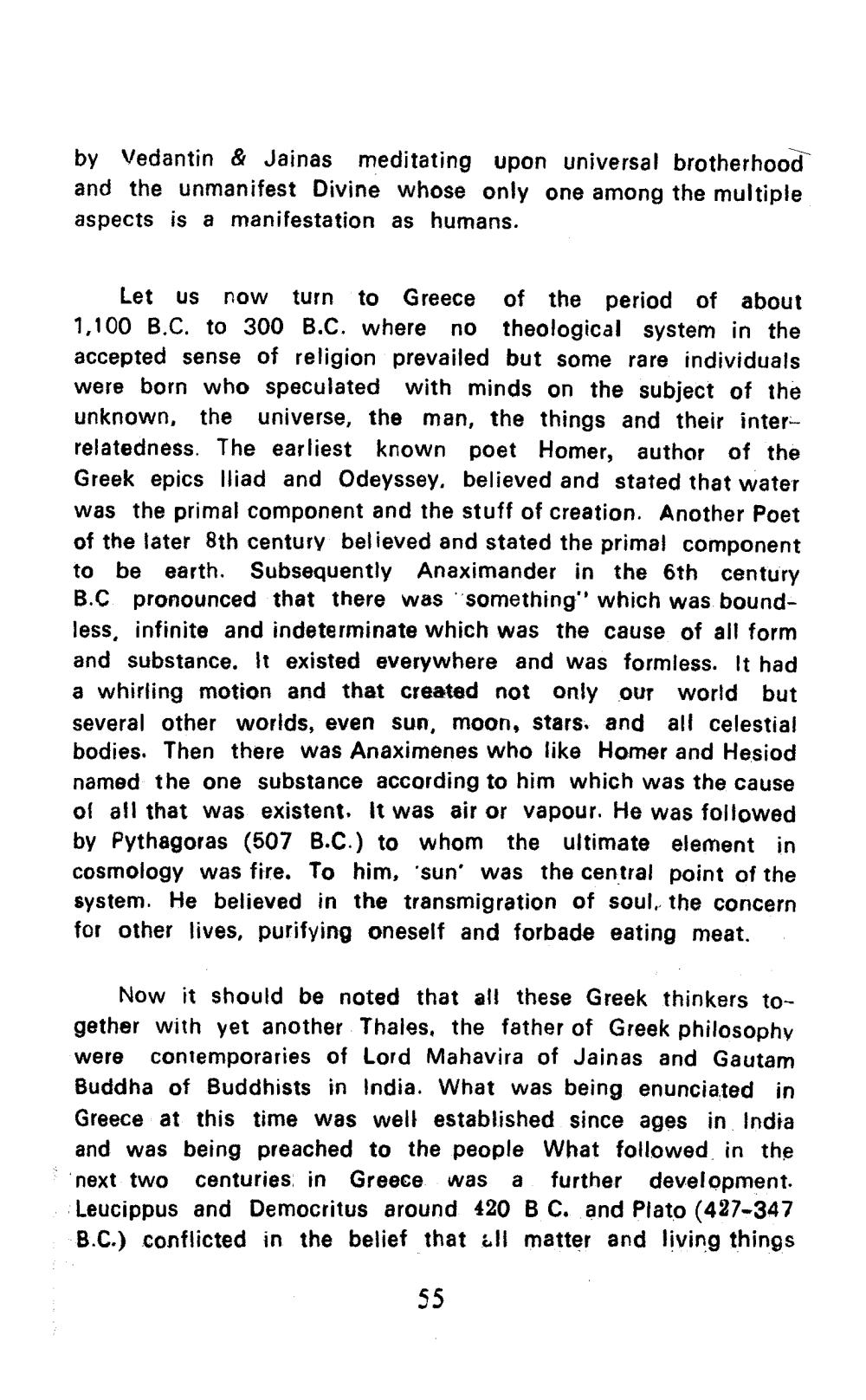________________
by Vedantin & Jainas meditating upon universal brotherhood and the unmanifest Divine whose only one among the multiple aspects is a manifestation as humans.
Let US now turn to Greece of the period of about 1,100 B.C. to 300 B.C. where no theological system in the accepted sense of religion prevailed but some rare individuals were born who speculated with minds on the subject of the unknown, the universe, the man, the things and their interrelatedness. The earliest known poet Homer, author of the Greek epics Iliad and Odeyssey, believed and stated that water was the primal component and the stuff of creation. Another Poet of the later 8th century believed and stated the primal component to be earth. Subsequently Anaximander in the 6th century B.C pronounced that there was something" which was boundless, infinite and indeterminate which was the cause of all form and substance. It existed everywhere and was formless. It had a whirling motion and that created not only our world but several other worlds, even sun, moon, stars. and all celestial bodies. Then there was Anaximenes who like Homer and Hesiod named the one substance according to him which was the cause of all that was existent. It was air or vapour. He was followed by Pythagoras (507 B.C.) to whom the ultimate element in cosmology was fire. To him, 'sun' was the central point of the system. He believed in the transmigration of soul, the concern for other lives, purifying oneself and forbade eating meat.
were
Now it should be noted that all these Greek thinkers together with yet another Thales, the father of Greek philosophy contemporaries of Lord Mahavira of Jainas and Gautam Buddha of Buddhists in India. What was being enunciated in Greece at this time was well established since ages in India and was being preached to the people What followed in the next two centuries in Greece was a further development. Leucippus and Democritus around 420 B C. and Plato (427-347 B.C.) conflicted in the belief that all matter and living things
55




